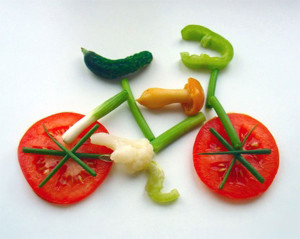Balanced diet plays a vital role in maintaining good health and wellbeing for a human. Food provides energy, protein, essential fats, vitamins and minerals to live, grow and function properly. The intake of wide variety of foods with right amounts of nutrients can result in attaining of Good health. Enjoying a healthy diet can bring a great cultural pleasure to one’s life.
A healthy weight can be maintained with good nutrition and physical activity. A good nutrition may help to
Reduce the risk of heart diseases, diabetes, stroke, some cancers, and osteoporosis
Reduce high blood pressure
Lower bad cholesterol
Improve human well-being
Improve human immune system
Increase one’s energy level etc.
The major causes of death, illness and disability in which diet and nutrition play a vital role such as coronary heart disease, stroke, hypertension, atherosclerosis, obesity, some forms of cancer, Type 2 diabetes, dental caries, osteoporosis, gall bladder disease, dementia and nutritional anemia. According to Infant Feeding Guidelines and Australian Dietary Guidelines, having a healthy diet helps minimize our risk of developing diet-related diseases.
A Small change can make a big difference to one’s health. At least six of the eight goals (given below) must be incorporated into ones diet for good health.
Take half plate fruits and vegetables: Red, orange, and dark-green vegetables, such as tomatoes, sweet potatoes, and broccoli, along with other vegetables are preferred in the meal. A fruit must be added to meals as part of main or side dishes or as dessert. The more colorful is the plate, the more vitamins, minerals, and fiber can be gained.
Eat more whole grains: Switching from a refined-grain food to a whole-grain food is an easy way to have whole grains. For example, prefer whole-wheat bread to white bread. Following the ingredients list, choose products that list whole-grain ingredients first. Make sure your food contains whole wheat, brown rice, bulgur, buck wheat, oatmeal, rolled oats, quinoa or wild rice.
Switch to fat-free or low-fat (1%) milk: Amount of calcium remains same in both and other essential nutrients remain as whole milk, but fewer calories and less saturated fat.
Selective lean protein foods: Meat, poultry, seafood, dry beans or peas, eggs, nuts, and seeds are considered as a part of the protein food group. Select leaner cuts of ground beef (where the label says 90% lean or higher), turkey or chicken breast.
Compare sodium levels in food: Use the Nutrition Facts label to choose lower sodium versions of foods like soup, bread, and frozen meals. Choose canned foods labeled low sodium, reduced sodium or no salt added.
Replace sugary drinks with water: Prevent the calories by drinking water or unsweetened beverages. Sports drinks, energy drinks and soda are a major source of added sugar and calories in most of the diets. Adding a slice of lime, lemon or watermelon or a splash of 100% juice to a glass of water gives some flavor.
Eat some seafood: Seafood includes fish (such as tuna, salmon and trout) and shellfish (such as mussels, oysters, crab). Seafood contains proteins, minerals and omega-3 fatty acids (heart-healthy fat). Adults must have at least eight ounces a week of a variety of seafood. Children can have smaller amounts of seafood too.
Cut back on solid fats: Have fewer foods that contain solid fats. The major sources for most of the people are cakes, cookies, and other desserts (often made with butter, margarine or shortening); pizza; processed and fatty meats (e.g., hot dogs, sausages, ribs, bacon); and ice cream.
A healthful diet and good nutrition play a vital role in preventing some of the issues inadequate nutrition can lead to short stature and delayed puberty, menstrual irregularities, nutrient deficiencies and dehydration, increased risk of injuries, poor bone health, poor academic performance and increased risk of eating disorders. Teaching children about the importance of good nutrition throughout their childhood will lay the foundation for a healthier more fulfilling life.

